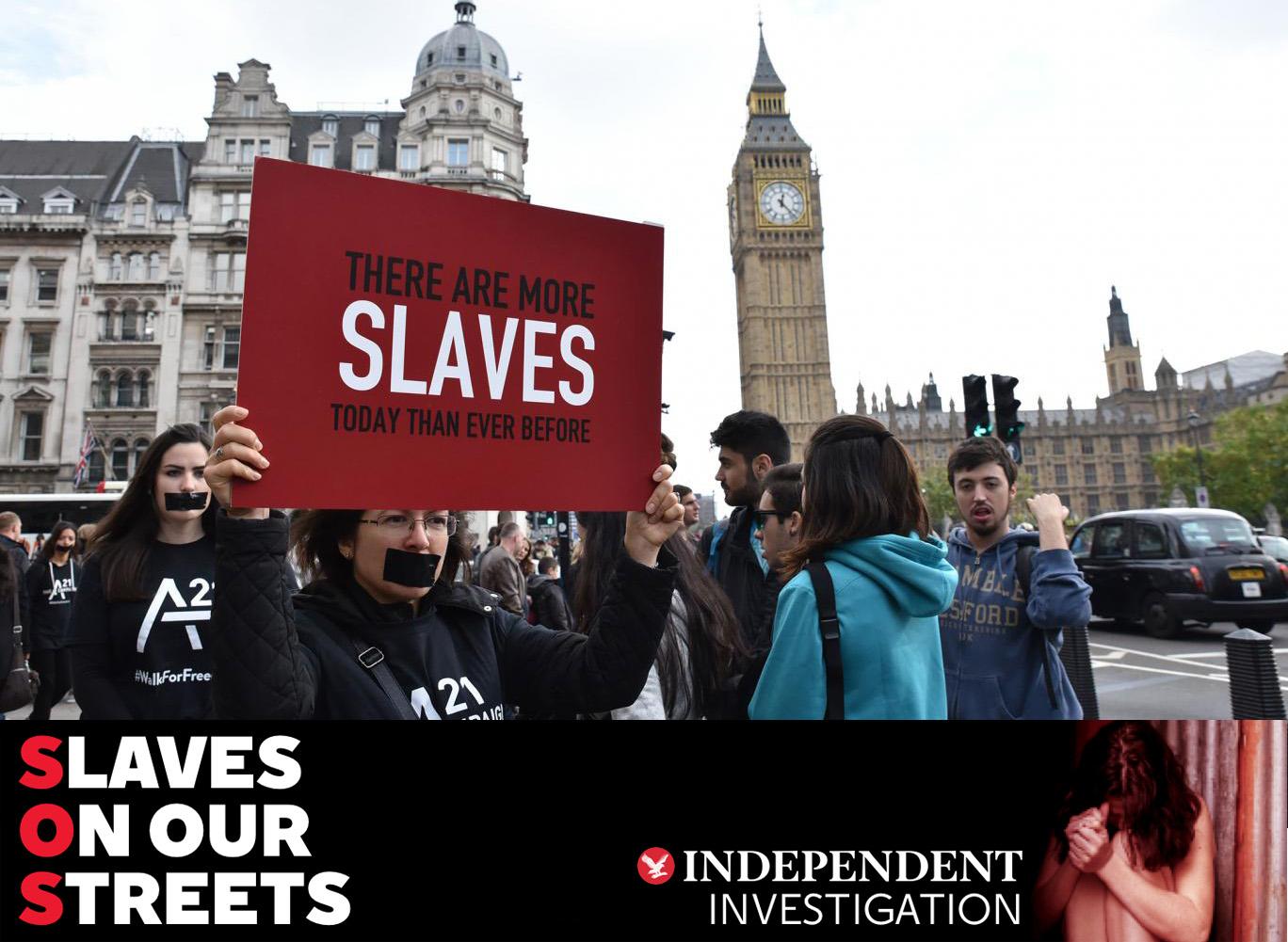Slaves on our Streets: What you can do to identify the abused and help those most at risk
Freedom United offers its insights into how to spot a victim and help those in danger

Together readers can help stop modern slavery through a new action platform launched by The Independent and the London Evening Standard as part of our Slaves on our Streets investigation.
Crafted with anti-slavery advocates Freedom United, the innovative online tool offers advice on spotting the signs and helping victims in danger. It also calls on policymakers and businesses to introduce better protections to prevent abuse and support victims.
Readers can learn how to uncover for themselves products made using slave labour, and demand that firms issue clear details of their supply chains. Leading lights in anti-slavery today called on the public to be the eyes and ears in the fight against slavery.
“Most people don’t know modern slavery is going on or what it looks like. But everybody can do something about it,” says Professor Gary Craig, founding fellow at Hull’s Wilberforce Institute for the Study of Slavery and Emancipation.
Asking questions is crucial, he said, recalling one night when a man with a bucket and sponge offered to clean his car for £6 in a supermarket car park. “I asked him, ‘How much of that do you get?’ and he said £3. ‘Who gets the rest?’ I asked. Then he turned on his heel and disappeared into the dark.”
Slavery is seen across all sectors from fishing to food production, hospitality and social care – as well as in the world of sexual exploitation.
If a man repeatedly books a hotel room at the end of a corridor, ordering meals in rather than eating out, alarm bells should sound for the receptionist. And a small, unassuming terraced house receiving many male evening visitors could turn out to be a den of sex abuse.
“Everybody reading The Independent can be reasonably sure there is a brothel with trafficked women within two or three miles of where they live,” says Craig. Research by King’s College London has shown as many as one in eight NHS workers have come into contact with somebody they suspected was a victim of modern slavery, but many didn’t know what to do about it.
Marissa Begonia, coordinator of Justice for Domestic Workers (J4DW), which rescued 12 workers from servitude last month alone, says readers can sometimes help victims through the simple act of reaching out.
They could be “in a mall or any public place” – and if a person is being attacked, slapped or shouted at then suspicions should be raised.
“Try to find a way of talking to that person – they may be afraid at first,” she says, adding that J4DW volunteers often secretly slip their phone number to victims.
But if you fear somebody is in immediate danger, call 999. In non-emergencies, slavery can be reported on 101, Crimestoppers on 0800 555 111 or the Modern Slavery Helpline on 08000 121 700.
Specialist charities such as Justice for Domestic Workers, the Salvation Army, Kalayaan, Unseen, or the NSPCC, can also offer advice.
TJ Birdi, director of the Helen Bamber Foundation, which supports victims of physical, sexual and psychological violence, says: “It is a serious crime and should be treated like any other serious crime and reported. It’s happening around us and we have to attune ourselves.”
Join our commenting forum
Join thought-provoking conversations, follow other Independent readers and see their replies
Comments
Bookmark popover
Removed from bookmarks